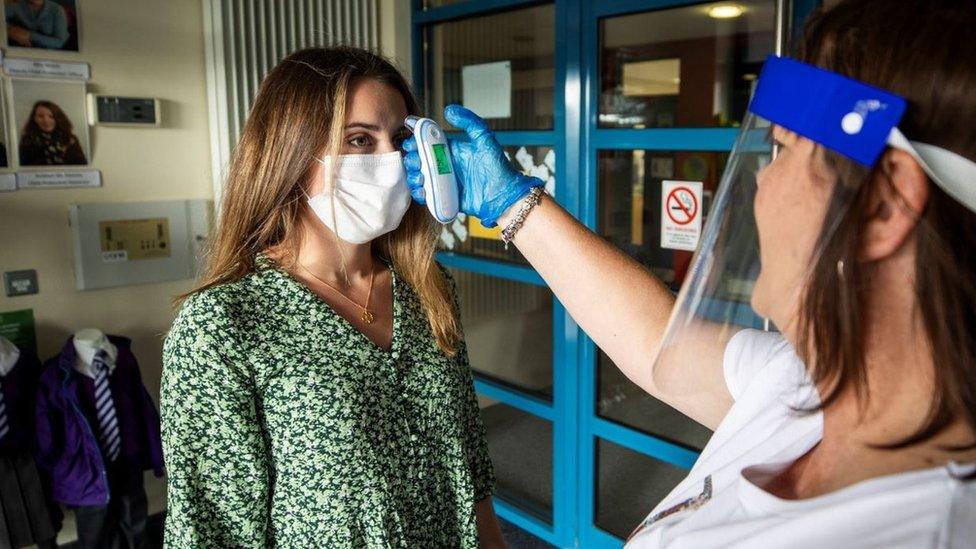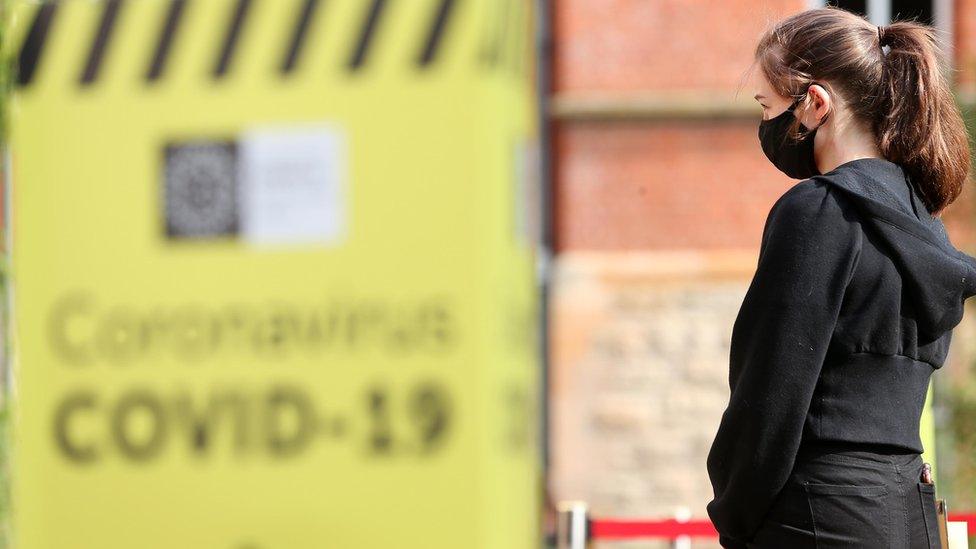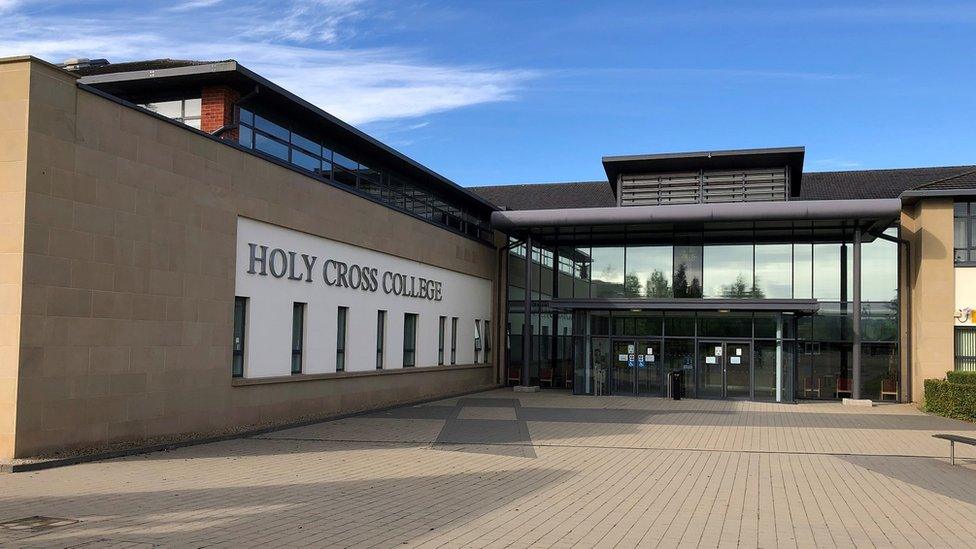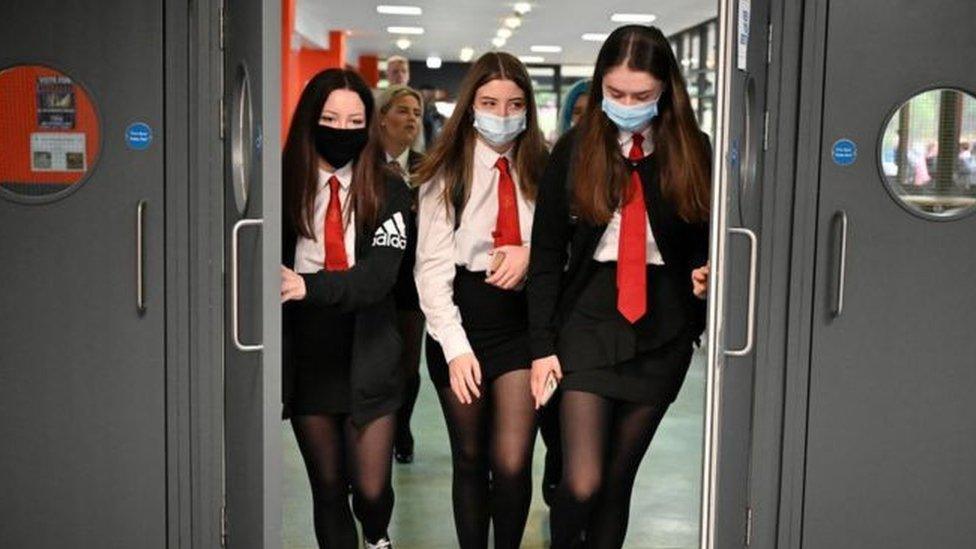Coronavirus: Face visors not recommended for routine school use
- Published

In some schools, face visors have been used as an alternative to face masks
Face visors are not recommended for routine use in schools, according to updated guidance from the Department of Education.
The advice given to schools said they offered little protection from Covid-19 transmission on their own.
Parent-teacher meetings and school staff meetings are also to be held using video conferencing if possible.
Pupils and staff have previously been advised to wear face coverings in school corridors and communal areas.
Face coverings should also be worn on school transport and can be worn in class, although some pupils and staff are medically exempt from wearing them.
In some schools, face visors have been used as an alternative to face masks.
But the new Department of Education (DE) guidance said face visors "do not offer the same protection as a mask or face covering which cover the nose and the mouth".
"Visors only protect the eyes and are only required where there is a risk of splashing," the guidance says.
"They are therefore only recommended for basic PPE [Personal Protective Equipment] when worn with a mask, plastic apron and gloves.
"They offer little protection worn on their own and are not recommended for routine use in schools.
"Staff remain free to procure and wear them at their own expense."

The guidance said visors only serve as basic PPE when worn with masks, aprons and gloves
Schools have also been told that if a pupil with Covid-19 symptoms has to be isolated while awaiting collection by relatives this should be done in a "non-threatening manner".
The pupil is to be "within the line of sight of adults".
However, schools are still advised that the pupil should be "quarantined" behind a closed door.
Children who develop symptoms of Covid-19 at home are not to come to school.
A small number of schools have had to close temporarily for enhanced cleaning after positive Covid-19 cases.
Many schools in Northern Ireland have had to send some groups of pupils home to self-isolate as they have been in close contact with a positive case.
- Published23 September 2020

- Published26 August 2020
